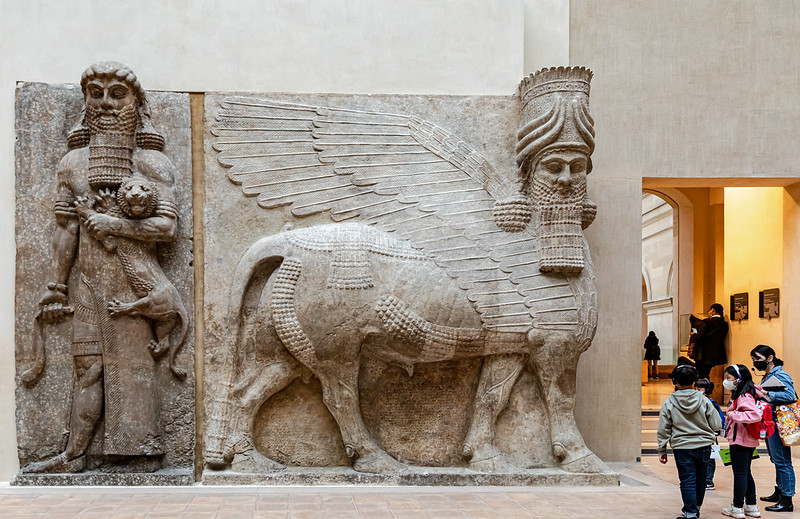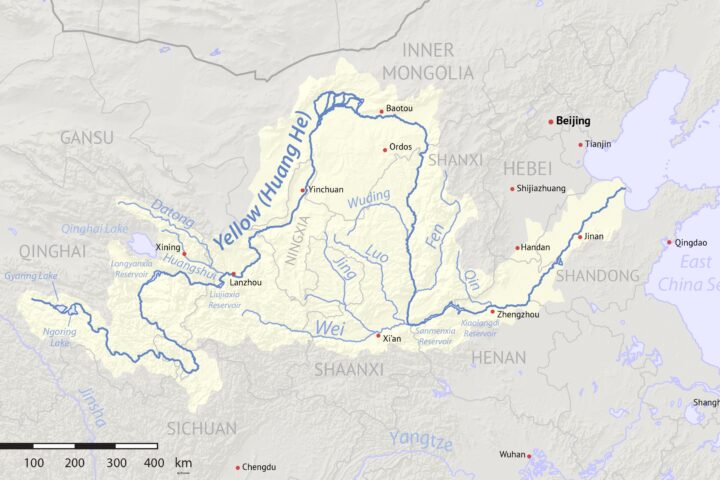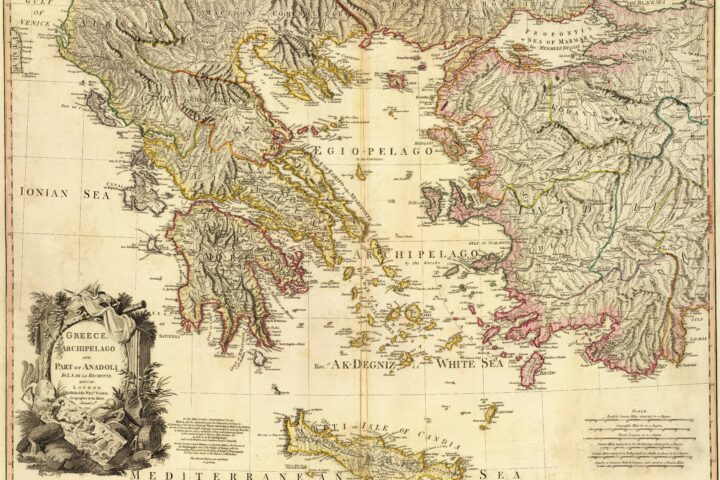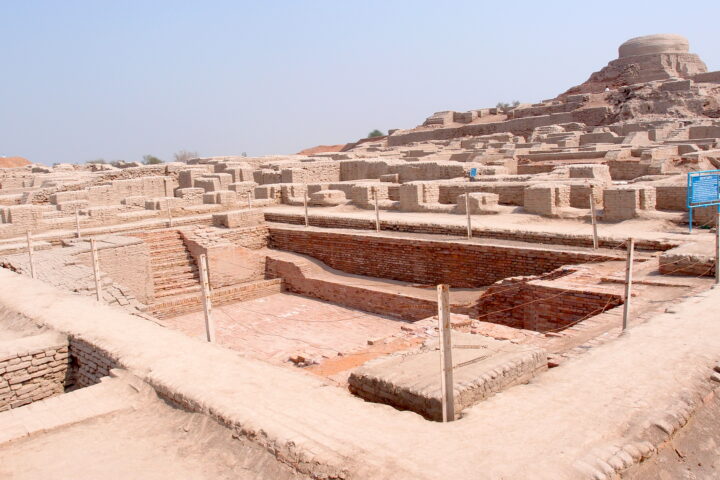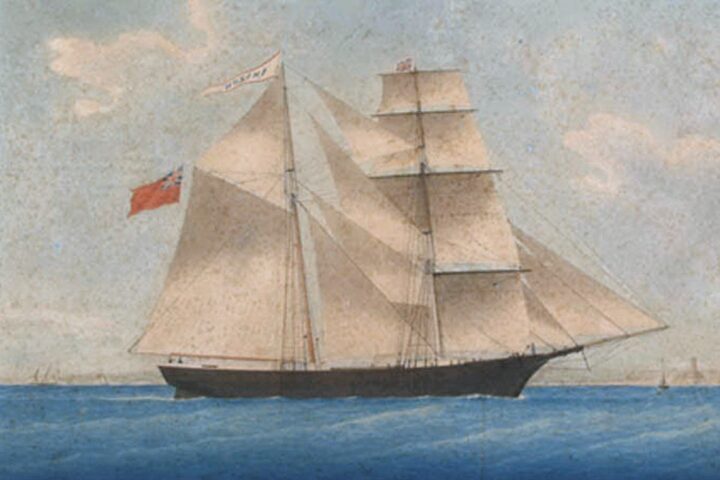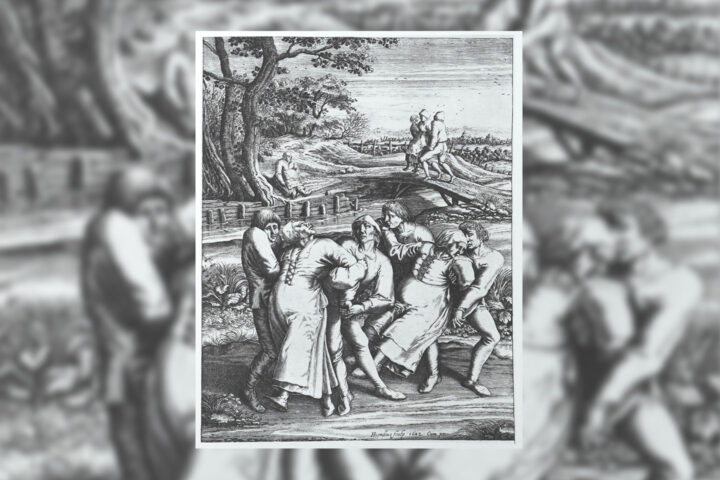Source: Flickr_Louvre Museum, Gilgamesh and Lion _ Louvre Museum, Departmen…
Read about the epic of Gilgamesh and how his identity is blurred between the lines of reality and imagination.
The Epic of Gilgamesh is one of the oldest and the most important literary works in human history. It is a window to peer into and understand the values and beliefs of the Ancient Mesopotamian Civilization. The writing has withstood the trials of time to reach the modern age and ever since its discovery, has been a rich topic of discussion.
It was written way back in the 18th century BCE in Akkadian on clay tablets and is the story of the historical king of Uruk, Gilgamesh. It explores themes of heroism, friendship, and the quest for immortality, and is pivotal to read if you want to understand Mesopotamian culture.
In History
The full text of this Epic was found by Turkish Assyriologist Hormuzd Rassam at the Nineveh, the oldest city in the Assyrian Empire, in the mid-19th century. It was in the library of the Assyrian King Ashurbanipal.
Rassam found 12 incomplete tablets and the gaps between them were later filled by fragments found in the rest of Mesopotamia and Anatolia. Five poems were identified and entitled-
- Gilgamesh and Huwawa
- Gilgamesh and the Bull of Heaven
- Gilgamesh and Agga of Kish
- Gilgamesh, Enkidu, and the Netherworld
- The Death of Gilgamesh
Some more historical evidence for the existence of Gilgamesh has been found in a lot of inscriptions which give him the credit for building the great walls of Uruk which is located in modern day Iraq. The Sumerian King List also mentions him, which adds to the evidence.
The discovery of this epic proved to be quite important for researchers worldwide because now they had a very good source for understanding ancient Mesopotamian society. Other than this:
- The literary significance of the Epic isn’t to be taken lightly. The themes and narrative techniques are the first of their kind and offer a glimpse of ancient storytelling.
- We also get to know a lot about the historical and socio-cultural landscape of the ancient society where Gilgamesh resides. The Mesopotamians’ views about friendship, heroism, life, and purpose are highlighted.
- There are also many references to gods. References like these are very helpful for understanding the religious and mythological background of the writers of the Epic. Parallels have also been found between events in this Epic, and those in other religious and mythological texts.
The Epic
The Epic of Gilgamesh starts with the story of a great king who is extremely powerful but also proud, arrogant, and a tyrant who troubles his people and uses force to get his way. In order to humble him, the gods create a wild man who goes by the name Enkidu. When Gilgamesh hears of Enkidu, who is roaming outside his Kingdom, he sends the temple prostitute Shamhat to tame him. She succeeds and Enkidu gets to learn about civilization as well as the tyranny of Gilgamesh. He goes to challenge the king, who accepts, and both of them prepare for a battle.
Both of them are an even match for each other but eventually, Gilgamesh defeated his opponent. Enkidu accepted his defeat graciously and the two became best friends. After this, they started adventuring together.
After a while, Gilgamesh feels like his name should be immortalized in history, and suggests that they go to the Cedar Forest to kill monster-demon, Humbaba. The demon is actually anything and favored by the gods because he protected the forest, but Gilgamesh only things about himself. Both of the friends went to the forest, defeated Humbaba, and when Humbaba cried for mercy, Gilgamesh killed him because of the encouragement of Enkidu.
Since the both of them won, they go back to celebrate the victory and Gilgamesh put on his finest clothes, which attracted the attention of Ishtar who desired him. He rejected her, however, and an angry Ishtar sent her brother-in-law, the Bull of Heaven, to destroy the two friends. But the two heroes killed the bull, and Enkidu threw one of its legs at Ishtar. This was an insult to the gods and they finally decided that it was time for the civilized-wild man to die. Enkidu suffered from pain until he died and when he did, Gilgamesh fell into deep grief.
His friend’s death led Gilgamesh to question the meaning of life and he cried-
“How can I rest; how can I be at peace? Despair is in my heart. What my brother is now, that shall I be when I am dead. Because I am afraid of death I will go as best I can to find Utnapishtim whom they call the Faraway, for he has entered the assembly of the gods. (Book 9; Sandars, 97)”
The incident affected him severely and he cast away all of his pride to set out on a quest to find the meaning of life. The rest of the Epic tells us about his journey to find another way of defeating death but he failed eventually. At the end, he returned to Uruk and wrote down his whole story on the walls of the city.
The Epic ends with Enkidu’s spirit returning to recover lost objects, who later also gives a report on the Underworld.
The Legacy
Gilgamesh isn’t the only half-human-half God king in mythology. There are several other kings in Mesopotamian history itself who claim to be half-god. But the Epic of Gilgamesh is important because it is the earliest narrative poem we have found till date. The way the plot points and heroic aspects of the characters have been written must have been inspiration for many other stories written later on.
The life story of Gilgamesh- his beginning as an arrogant prince who later went on to struggle to find the meaning of life- makes him the first Epic hero in literature. The various aspects of his life including his arrogance, his sadness over his friend’s death, and later philosophical questions resonate with anyone who has also struggled with grief. It’s not a story where the hero succeeds in everything and eventually, gains immortality at the end. No, he fails and lives on to become a great king nonetheless. In the process of doing so, he makes his legacy and his Kingdom immortal. Future generations feel connected to the ancient past through him and his stories.
Resources
In History
- Epic of Gilgamesh | Summary, Characters, & Facts | Britannica. (2024). In Encyclopædia Britannica. https://www.britannica.com/topic/Epic-of-Gilgamesh
- Mark, J. J. (2022, December 15). Gilgamesh. World History Encyclopedia. https://www.worldhistory.org/gilgamesh/#google_vignette
The Epic
- Mark, J. J. (2022, December 15). Gilgamesh. World History Encyclopedia. https://www.worldhistory.org/gilgamesh/#google_vignette
- Gilgamesh | Epic, Summary, & Facts | Britannica. (2024). In Encyclopædia Britannica. https://www.britannica.com/topic/Gilgamesh
The Legacy
- https://www.facebook.com/thoughtcodotcom. (2019). The Myth of Gilgamesh, Hero King of Mesopotamia. ThoughtCo. https://www.thoughtco.com/gilgamesh-4766597
- Mark, J. J. (2022, December 15). Gilgamesh. World History Encyclopedia. https://www.worldhistory.org/gilgamesh/#google_vignette

